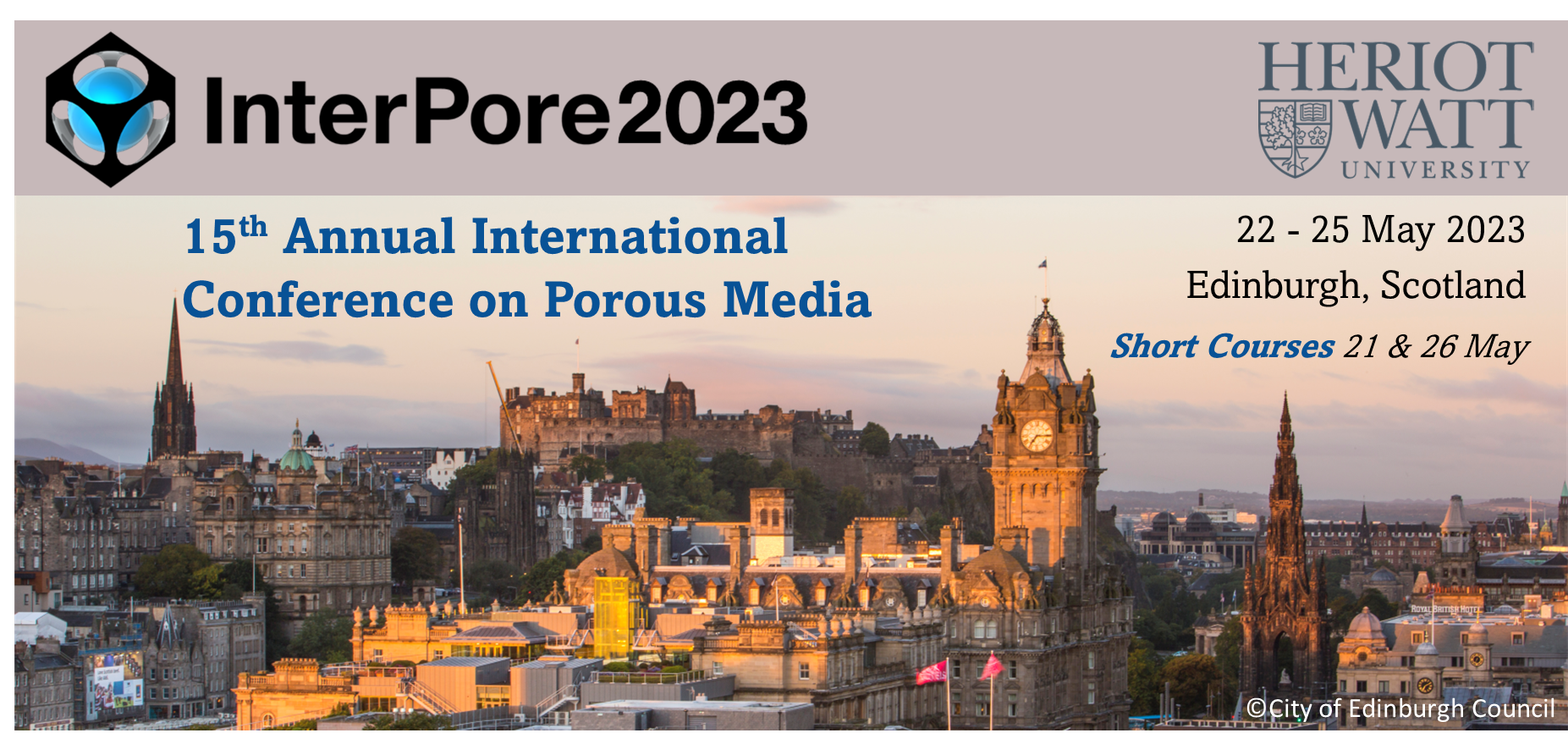Speaker
Description
Due to the intermittent nature of renewable energy resources like wind and solar, development of large-scale (TWh) energy storage systems is essential. A feasible solution for this can be offered by Underground Hydrogen Storage (UHS) in porous media. To ensure the safety of UHS, as well as to optimize injection and withdrawal cycles, a good understanding of hydrogen (H2)/brine interfacial, thermodynamic, and transport properties is needed [1]. More specifically, the diffusivities and solubilities of H2 in brine, and the interfacial tensions of H2 gas in contact with brine are crucial properties for reservoir simulation.
Traditionally, these thermophysical properties are measured experimentally. Based on the available experimental data, it is evident that only a limited range of the required interfacial tensions, solubilities, and self-diffusivities of the H2/H2O/NaCl system has been measured, while in some cases, there are significant discrepancies between the data reported from different sources. The reason for the scarcity of and deviation in the data may be that experimental measurements are rather challenging and expensive to perform, especially at high pressures and temperatures. To this end, molecular simulation is a widely used complementary approach for obtaining thermophysical data [2,3], especially at conditions which are challenging for experimental measurements.
In this work [4], force field-based Molecular Dynamics (MD) and Continuous Fractional Component Monte Carlo (CFCMC) simulations are carried out in this work to cover this gap. Extensive new data sets are provided for (a) Interfacial tensions of H2 gas in contact with aqueous NaCl solutions for temperatures of 298 - 523 K, pressures of 1 - 600 bar, and molalities of 0 - 6 mol NaCl/kg H2O computed using MD, (b) self-diffusivities of infinitely diluted H2 in aqueous NaCl solutions for temperatures of 298 - 723 K, pressures of 1 - 1000 bar, and molalities of 0 - 6 mol NaCl/kg H2O computed using MD, and (c) solubilities of H2 in aqueous NaCl solutions for temperatures of 298 - 363 K, pressures of 1 - 1000 bar, and molalities of 0 - 6 mol NaCl/kg H2O computed using CFCMC simulations. The simulations for computing H2 self-diffusivities are also used to yield predictions for densities and viscosities of the NaCl solutions.
Our results are validated against the available experimental data, models, and simulations. Excellent agreement between the results and experimental data is found with deviations smaller than 10% for most of the data points. The investigated properties depend on pressure, temperature, and salt concentration, with the exception of interfacial tension where no significant dependence on pressure was found. The dependencies were analysed and were in agreement with expectations based on theory and available literature. Using this analysis, we were able to develop engineering equations for interfacial tension and self-diffusion capturing the effect of pressure, temperature, and solution molality. These equations can be used in reservoir simulators for calculating values at a specific combination of conditions in a fast and reliable way.
References
[1] Hashemi, L.; Blunt, M.; Hajibeygi, H. Pore-scale modelling and sensitivity analyses of hydrogen-brine multiphase flow in geological porous media. Scientific Reports 2021, 11, 1–13.
[2] Allen, M.; Tildesley, D.; Tildesley, D. Computer Simulation of Liquids, 2nd ed.; Oxford Science Publications; Oxford University Press: New York, 2017.
[3] Frenkel, D.; Smit, B. Understanding molecular simulation: from algorithms to applications, 2nd ed.; Elsevier: San Diego, 2002.
[4] Van Rooijen, W. A.; Habibi, P.; Xu, K.; Dey, P.; Vlugt, T. J. H.; Hajibeygi, H.; Moultos, O. A. Interfacial tensions, solubilities, and transport properties of hydrogen in aqueous NaCl solutions: A molecular simulation study. Under review.
| Participation | In-Person |
|---|---|
| Country | The Netherlands |
| Energy Transition Focused Abstracts | This abstract is related to Energy Transition |
| MDPI Energies Student Poster Award | No, do not submit my presenation for the student posters award. |
| Acceptance of the Terms & Conditions | Click here to agree |







